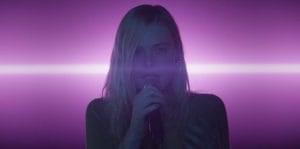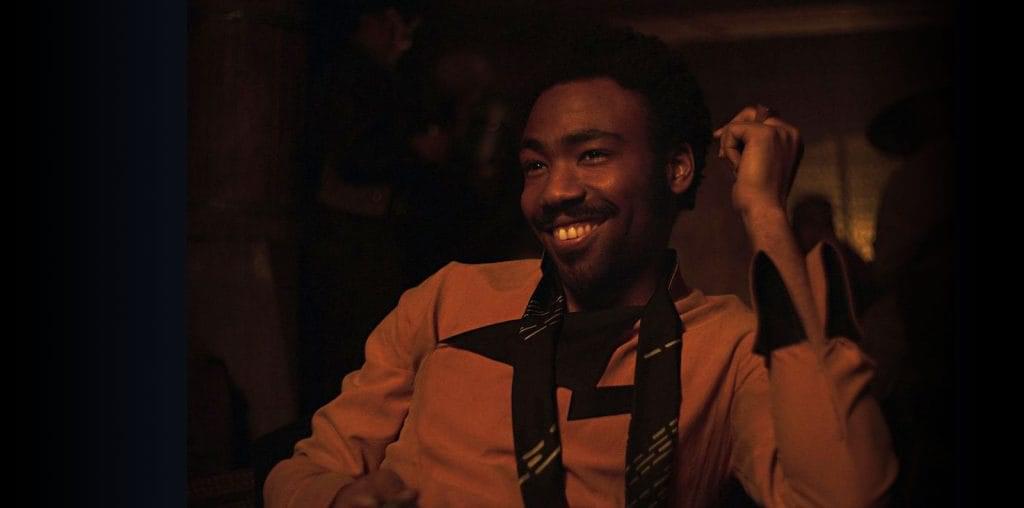
Crucial to the movie’s success is Cam McLauchlin’s skillful editing. The film fascinatingly plays with chronology, circling back around to scenes during musical performances, to give the audience a great understanding of what the leads are feeling during that moment. The audience discovers that as a little girl, Violet caught her mom cheating on her dad. This is a starkly dramatic scene, one that furthers the two’s relationship immensely, and it comes in part of a beautiful audition montage. There is no dialogue, just the visuals and soundtrack to carry the audience through the inner turmoil and ultimate strength Violet found due to this moment.
The most purely fun part of the movie is set to No Doubt’s Just A Girl as Violet dances her heart in the middle of the room. Her frustrations with work, school, and her mom are vented in this wild burst of energy, and the audience is given keen insight into her wants, desires, and dreams during this. Again, without dialogue; just the visuals, the style of editing, and kickass soundtrack.
All those moments described above, discovering the source of tension between Violet and her mom, finding out about Vlad’s life as an opera singer, and their central relationship is conveyed in a relatable way. This is because Minghella’s writing skills are just as strong as his directing capabilities. There are some cliches such as Violet initially not winning the second stage of the competition, but the first pick gets disqualified. However, there are just as many cliches that are avoided.

“…delivers a kinetic, sensory overload in the best way.”
To be allowed to continue in Teen Spirit, Violet, who is 17-years old, needs a guardian or parent’s permission. Her mom would never agree to such a thing, so she gets Vlad to agree to pretend to be her uncle. In a more stereotypical story, there would be a dramatic moment where the people who run the contest confront her with the truth, and she almost gets kicked out. Thankfully, Teen Spirit, the movie has no time for such manufactured moments. It is about two souls, one older, one younger, who both feel trapped in their lives for various reasons. There are plenty of authentic, character-driven stories to follow there, that piling on useless side plots would only serve as a distraction.
Elle Fanning has never been more luminous than as Violet. Seamlessly switching from English to Polish to singing, sometimes all within one sequence, she brings the character’s flaws and strengths to vivid life. Her singing voice is remarkable, and she nails every song. The ending number, in particular, is going to bringing down the house of the theaters showing the movie. Zlatko Buric, as the headstrong Vlad, is also astounding. From the Pusher trilogy to the underrated gem Dirty Pretty Things, Buric has also been a reliable screen presence. Here, in his most substantial role for mainstream audiences, he gets to show a range that his smaller parts didn’t bring forth.

